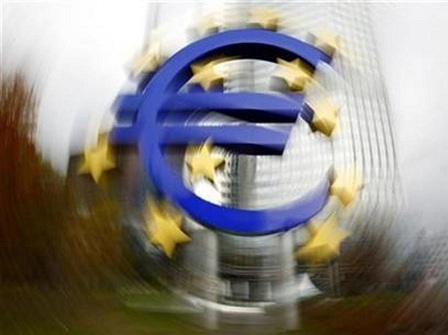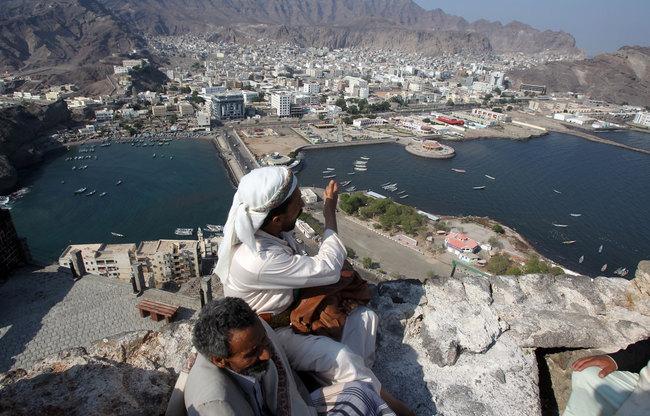BRUSSELS: When I gave my first public speech as Secretary General of NATO just over a year ago, I focused on the NATO-Russia relationship, because I believe it is crucial for global, not just European, security. At that time, I thought the relationship to be in urgent need of repair, and that NATO and Russia should make a “new beginning.” So I made several specific proposals for laying the foundations of a far more productive future relationship. A year on, how do we measure up?
We have, first of all, reinforced our practical cooperation in a range of areas.
Fighting terrorism
Because terrorism is a transnational scourge, we can defeat it only if we work together. NATO countries and Russia have agreed on a joint assessment of terrorist threats, and are already making considerable progress on a number of concrete projects. We are working together, for example, to counter the threat of attacks on mass transport and other public gathering places. Under a joint program called STANDEX (Stand-Off Explosives Detection), we have brought together leading research institutes and laboratories in NATO countries and Russia to integrate various technologies into a single system for detecting explosives and identifying potential attackers.
Preventing proliferation
The proliferation of nuclear capabilities and ballistic missiles is a major concern for the international community as a whole, and a grave and growing threat to the NATO countries and the Russian Federation. Experts from NATO and Russia have met several times to discuss how their countries can best address this threat together, and a Working Group on arms control, disarmament, and non-proliferation is now taking this cooperation forward.
Stabilizing Afghanistan
Russia’s interest in a stable Afghanistan is as strong as that of the NATO allies. In the spring of 2010, the first cargo containers reached the NATO-led International Security Assistance Force (ISAF) via Russian territory, opening an important additional line of communication. The NATO-Russia project to provide counter-narcotics training to personnel from Afghanistan and Central Asia has produced more than 1,300 graduates, many of whom have already used their new skills to intercept some of the largest heroin shipments in the region. And, following suggestions that I made in Moscow last December, Russia’s leaders are considering additional contributions of helicopters and training to the Afghan National Army.
Beyond increasing our practical collaboration, we have rejuvenated the NATO-Russia Council, and have broadened and deepened our dialogue over the past year. We have held open, frank, and constructive discussions on a broad range of Russian and allied security concerns, and on proposals to address them. While these discussions have not led us to see eye-to-eye on all issues, they have certainly helped to build a greater degree of mutual trust and confidence, which will certainly benefit our future cooperation.
The same is true of our joint review of common security challenges, which has progressed extremely well, with agreement on five threats and challenges that call for enhanced cooperation: terrorism, Afghanistan, piracy, proliferation of weapons of mass destruction, and natural and man-made disasters. We are already fleshing out the details on appropriate practical projects to be undertaken together.
The NATO-Russia relationship has also progressed in other areas. NATO has been fully transparent with Russia on the development of the Alliance’s new Strategic Concept, which I hope will encourage similar transparency from our Russian partners as they develop their own strategic documents. NATO has also taken the initiative on overcoming the deadlock on the Treaty on Conventional Forces in Europe, which promises to strengthen conventional arms control and transparency.
Taken together, these achievements show that a new beginning in NATO-Russia relations has indeed been established. But my optimism about the future of our relationship does not blind me to the difficulties that remain. The NATO allies still have concerns about Georgia, where fundamental differences of principle are at stake. Russia, too, continues to have concerns – for example, over NATO’s Open Door policy. I believe that these worries are misplaced, and that NATO enlargement has enhanced security and stability for Russia.
Despite these remaining differences, we should have enough confidence to set out an ambitious agenda for the future. One of our priorities should be to enhance our operational cooperation. Back in the 1990s, we worked together with great success to stabilize the Balkans. I would like to see more joint peacekeeping operations, not only on land, but also at sea to enhance maritime security — in particular, greater cooperation in our efforts to combat piracy in the Gulf of Aden. Moreover, our operational cooperation in Afghanistan could be stepped up. Russian donations to the Afghan National Army could make a huge difference to the Afghans’ ability to ensure their own security, which is in the interest of us all.
But it is in the area of missile defense that I see the greatest potential for enhancing the NATO-Russia relationship. Earlier this year, in light of the growing threat of proliferation of nuclear capabilities and ballistic missiles, I proposed a common “security roof” stretching from Vancouver to Vladivostok. I hope that in the coming months and years we will have the political will to make this a reality — a reality underpinned by NATO-Russia cooperation on missile defense.
A healthy NATO-Russia relationship is vital to the security of us all. Now that a solid foundation for it is in place, together we can look to the future with renewed confidence and ambition. I will do everything in my power to ensure that we fulfill the tremendous potential that the NATO-Russia relationship holds, and I count on the support of all members of the NATO-Russia Council for achieving this goal.
Anders Fogh Rasmussen is Secretary General of NATO. This commentary is published by Daily News Egypt in collaboration with Project Syndicate/Europe’s World, (www.project-syndicate.org and www.europesworld.org).

